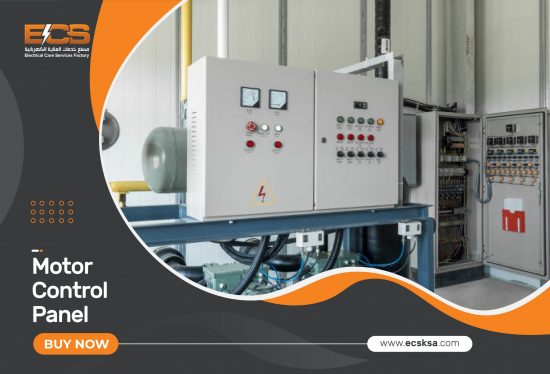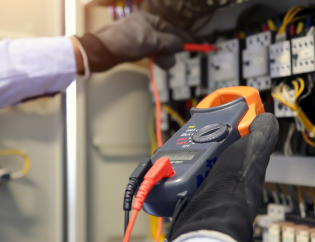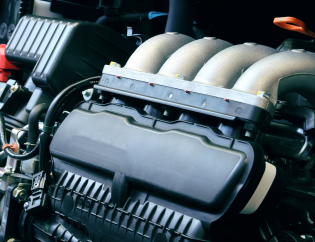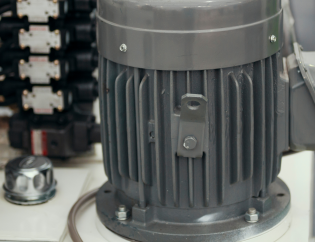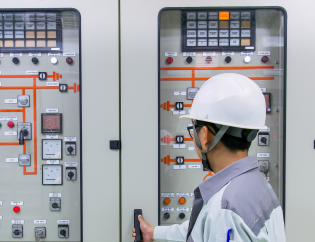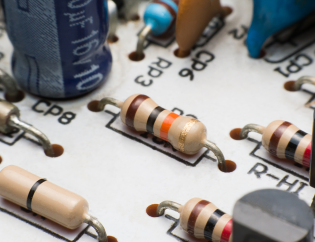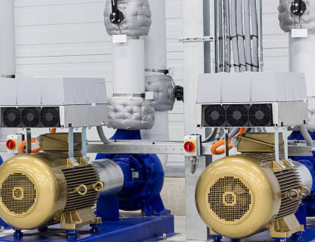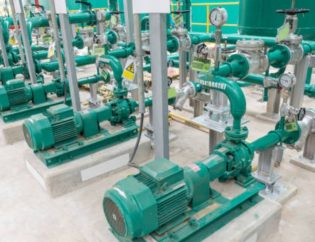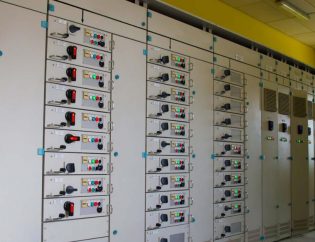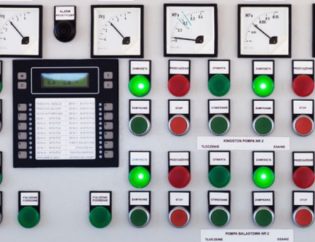What Are the Functions of the Motor Control Panel and Motor Control Center
Motor Control Centers (MCCs) and Motor Control Panels (MCPs) both serve the primary function of controlling electric motors. They do this by regulating the power supplied to the motor, as well as providing protection for the motor and the electrical system as a whole. The specific functions of an MCC and an MCP may vary depending on the specific application and the components included, but some standard functions of these devices include the following:
Motor starting and stopping
MCCs and MCPs can be used to start and stop electric motors, typically through a combination starter or other type of motor controller.
Motor speed control
Some MCCs and MCPs can be used to adjust the speed of electric motors, typically through the use of a variable frequency drive (VFD) or other types of the motor controller.
Motor protection
Both MCCs and MCPs can include components such as fuses, circuit breakers, and thermal overload relays that protect the motor and the electrical system from damage due to overloading, short-circuiting, or other types of electrical faults.
Monitoring and diagnostic functions
Many MCCs and MCPs include monitoring and diagnostic functions that allow users to monitor the performance of the electric motor and the electrical system and to diagnose and troubleshoot problems.
Communication with other systems
Modern MCCs and MCPs may have communication interfaces that allow them to communicate with other systems, such as building management systems, supervisory control and data acquisition (SCADA) systems, and other industrial control systems.
Overall, MCCs are designed for larger and more complex applications, whereas MCPs are more suited for smaller, simpler applications. Upgrade your power system with our custom MCC control panels. Improve efficiency, reliability, and safety. Contact us now to schedule a consultation.
Types of Motor Control Panels
- Custom Across-the-Line Combination Starters: These motor control panels are custom-designed to fit the specific needs of the application. They combine across the line, starting with protective devices such as fuses or circuit breakers, and often include features such as remote control and monitoring.
- Motor Control Center (MCC): This type of motor control panel is a central distribution system that contains multiple (MCPs) or (MCUs) in one common enclosure. It is typically used in industrial environments to control and protect many motors in a single location.
- Explosion Proof Starters Type 7/9 Groups B through G: These motor control panels are designed for use in hazardous environments where flammable gases, vapors, or dusts may be present. They are built with explosion-proof enclosures and other safety features to prevent ignition of the surrounding atmosphere.
- Multi-Speed and Reduced Voltage Starters: These motor control panels are used to control the speed and voltage of multiple motors. They allow the user to adjust the speed and voltage of the motors to match the specific needs of the application.
- Multi-Motor Starter Panels: These motor control panels are used to control multiple motors in a single location. They often include features such as remote control and monitoring, as well as protection devices such as thermal overload protection and short-circuit protection.
- Starter Panel: These motor control panels control and protect a single electric motor. They typically include a Motor Control Unit (MCU) that controls the power supply to the motor, including starting, stopping, and adjusting the speed of the motor.
Motor Control and Its Applications
Motor control refers to the method of controlling the operation of electric motors in various industrial and commercial applications. Motor control systems control the speed, torque, and direction of rotation of electric motors.
Some common applications of motor control include:
- Industrial automation: Motor control systems are used to control the operation of machines in manufacturing and assembly operations.
- HVAC systems: Motor control systems are used to control the operation of fans, pumps, and other equipment in heating, ventilation, and air conditioning systems.
- Conveyor systems: Motor control systems are used to control the operation of conveyor belts, which are used in material handling operations.
- Elevators and escalators: Motor control systems are used to control the operation of these systems, which are used to move people and goods vertically within buildings.
- Robotics: Motor control systems are used to control the movement of robotic arms and other robotic equipment.
- Electric vehicles: Motor control systems are used to control the operation of electric motors in electric vehicles, such as cars, buses, and trains.
- Renewable energy systems: Motor control systems are used to control the operation of wind turbines and other renewable energy systems.
All these applications require precise, efficient, and reliable control of electric motors, which is achieved through the use of motor control systems.
Conclusion
In conclusion, both are used in power distribution systems to control and protect electric motors. The main difference between Motor Control Centers (MCCs) and Motor Control Panels (MCPs) is the scale of the application. MCCs are typically used in large-scale industrial environments. However, MCPs are standalone units typically containing a single Motor Control Unit (MCU) that controls and protects a single electric motor.
Motor control panels are crucial in various industrial and commercial applications, such as industrial automation, HVAC systems, conveyor systems, elevators, robotics, electric vehicles and renewable energy systems. These panels provide precise, efficient, and reliable control of electric motors, which is essential for the smooth operation of these systems.
Upgrade your power distribution system with our top-of-the-line motor control panels today. Our panels are designed to provide superior control and protection for your motors, ensuring efficient and safe operation. Whether you need a single motor starter panel or a complex motor control center for a large industrial facility, we have the perfect solution. Contact us now for a free consultation, and let us help you find the right motor control panel for your needs.
Do you have a question in your mind? If so, make sure to fill out the form below!

